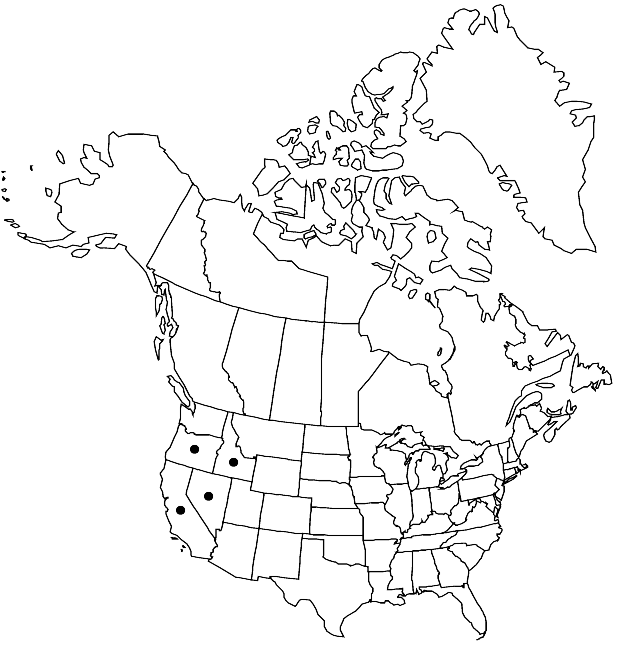Boechera pratincola
Harvard Pap. Bot. 12: 245. 2007.
Perennials; usually short-lived; apomictic; caudex not woody. Stems usually 1 per caudex branch, arising from center of rosette near ground surface, 2–6 dm, pubescent proximally, trichomes sessile, 2- or 3-rayed, 0.15–0.6 mm, glabrous distally. Basal leaves: blade oblanceolate, 1.5–5(–7) mm wide, margins usually entire, rarely denticulate, ciliate at petiole base, trichomes to 0.4 mm, surfaces pubescent, trichomes sessile, 2–4(–6)-rayed, 0.1–0.45 mm. Cauline leaves: (7–)13–42, concealing stem proximally; blade auricles 1–4 mm, surfaces of distalmost leaves sparsely pubescent apically. Racemes (7–)14–45-flowered, usually unbranched. Fruiting pedicels erect, straight, 5–12 mm, glabrous. Flowers ascending at anthesis; sepals glabrous; petals lavender, 6–10 × 1.5–2 mm, glabrous; pollen spheroid. Fruits erect, appressed to rachis, not secund, straight, edges parallel, 4–6.5 cm × 1.5–2 mm; valves glabrous; ovules 60–140 per ovary; style 0.1–0.3 mm. Seeds sub-biseriate, 1.4–2 × 1–1.4 mm; wing continuous, 0.1–0.35 mm wide.
Phenology: Flowering Jun–Aug.
Habitat: Rocky slopes and soil patches in open areas and along forest edges
Elevation: 1900-3200 m
Distribution

Calif., Idaho, Nev., Oreg.
Discussion
Morphological evidence suggests that Boechera pratincola is an apomictic species that arose through hybridization between B. paupercula and B. stricta (see M. D. Windham and I. A. Al-Shehbaz 2007b for detailed comparison).
Selected References
None.